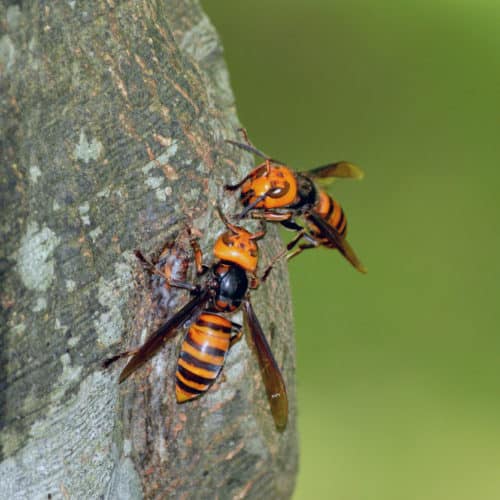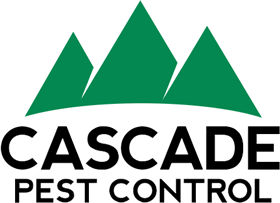Author: Kurt Treftz, Cascade Pest Control
You may have seen and heard the various news reports with regard to the Asian Giant Hornet migrating into the state of Washington.
What is an Asian Giant Hornet?
 The Asian Giant Hornet (Vespa mandarinia), also referred to as the Yak-Killer Hornet, and at more than two-inches long, is the world’s largest hornet and has a very painful, and sometimes lethal (if allergic), sting which injects a large amount of potent venom.
The Asian Giant Hornet (Vespa mandarinia), also referred to as the Yak-Killer Hornet, and at more than two-inches long, is the world’s largest hornet and has a very painful, and sometimes lethal (if allergic), sting which injects a large amount of potent venom.
- They have a large yellow/orange head with prominent eyes
- They have a black and yellow striped abdomen
- They form large colonies that typically nest in the ground
The Asian Giant Hornet is not only a health hazard and a potential danger to humans, but also feeds on honey bees.
When Did the Asian Giant Hornet Arrive in Washington State?
It’s not clear on when it arrived in North America, but first Washington state sightings (Washington State Department of Agriculture verified) were last year (December 2019) near Blaine and Bellingham and unconfirmed sightings in Custer, WA.
Being indigenous to eastern Asia, it was unusual to not only see this species in the Washington climate, but during the winter season when the Asian Giant Hornet is typically dormant. They are typically most active between July and October.
The Asian Giant Hornet Appetite for Honey Bees
While this invasive giant hornet feeds on tree saps, larger insects, colonies of similar insect species, honeybees are especially easy targets when clustered in beehives. Asian Giant Hornets are 5x’s the size of honey bees and can feed on up to 40 bees per minute.
They will often decapitate the bees – so you may notice the aftermath of an Asian Giant Hornet’s attack before actually seeing the Asian Giant Hornets: piles of headless dead bees outside a beehive.
Are Asian Giant Hornets Dangerous to Humans?
Typically, the Asian Giant Hornet will not randomly, or without cause, attack you or your pets, however if threatened, they WILL attack. Their stinger is large and their venom is more toxic than a bee or wasp. They will also repeatedly sting their victim.
A Word of Caution:
People are asked to report sightings to the WSDA. If you discover a colony, do not attempt to remove it yourself. Beekeeping clothing is not sufficient in protecting you from the stings of the Asian Giant Hornet – and if you are allergic to wasp or bee venom, you should never go near an Asian Giant Hornet.
Call Cascade Pest Control professional technicians to eradicate at 888-989-8979
